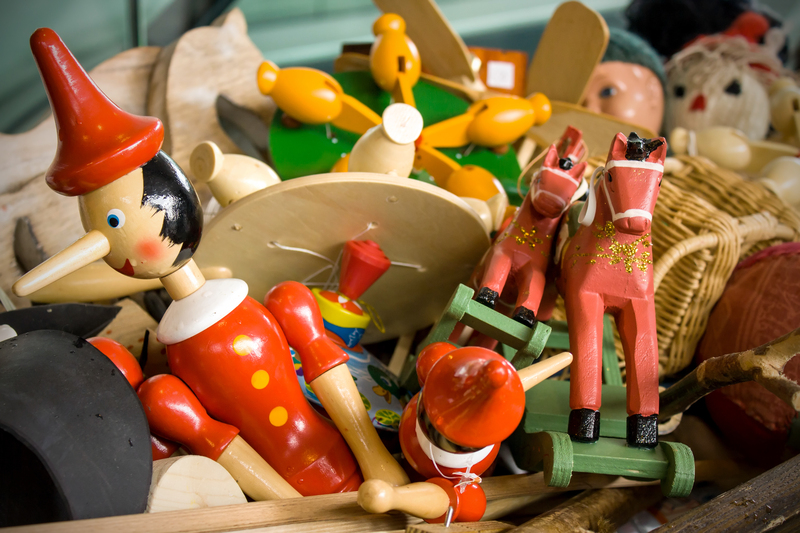Eco-Friendly Tips for Recycling Your Used Pots and Pans
Every kitchen has them: pots and pans that have seen better days. Instead of sending these kitchen staples to a landfill, consider creative and responsible ways to recycle them. Adopting eco-friendly disposal and recycling practices for your used pots and pans not only benefits the environment, but also inspires a culture of sustainability in your home. In this comprehensive guide, discover the many methods and tips for giving your old cookware a new life.
Why Recycle Old Pots and Pans?
Before jumping into the best ways to recycle used cookware, it's essential to understand why this matters. In the United States alone, millions of cookware items are disposed of annually, contributing to landfill waste and environmental pollution. Many cookware sets are made from metals such as aluminum, stainless steel, or copper, which can be recycled and reused in new products. By adopting eco-friendly habits for pots and pans recycling, you:
- Reduce landfill waste
- Conserve natural resources
- Minimize carbon footprint
- Promote a circular economy
By recycling your pots and pans instead of tossing them, you help decrease the demand for new raw materials and support more sustainable manufacturing.

1. Repurpose Before Recycling: Give Them a Second Life
Before considering discarding your old cookware, see if you can find a new use for it in your home. Repurposing is the most environmentally friendly solution!
Creative Upcycling Ideas
- Planters for Herbs and Flowers: Drill a drainage hole and use your old pots as quirky garden planters.
- Bird Baths and Feeders: Transform shallow pans into bird baths or feeders to bring wildlife to your yard.
- Storage Containers: Use deep pots to organize tools, craft supplies, or utensils in garages or sheds.
- Home Decor: Unique paint jobs or designs can turn pans into wall hangings or decorative pieces.
- Candle Holders: Metal pans are ideal for creating rustic candle holders or lanterns.
Challenge yourself to find new and unique purposes for each piece of cast-off cookware--your creativity is the limit!
2. Donate Usable Pots and Pans
If your cookware is still in usable condition--for instance, with no warping or flaking--consider donating them to those in need. Donating extends the item's life and helps others access necessary kitchenware they might not afford.
Best Places to Donate Old Cookware
- Local Thrift Stores: Goodwill, Salvation Army, and other charities often accept used pots and pans.
- Homeless Shelters and Food Pantries: Organizations that help the underserved usually need cooking supplies.
- Community Centers: Check with local community kitchens or schools.
- Online Giving Networks: Use platforms like Freecycle or Buy Nothing groups to pass on your used pots and pans locally.
Pro Tip: Clean your cookware thoroughly before donating. Remove any food residue or rust to ensure it is hygienic and safe to use.
3. Recycle Metal Cookware Responsibly
Most pots and pans are made of recyclable metals like aluminum, stainless steel, cast iron, or copper. However, appropriate recycling varies by material and local regulations.
How to Recycle Different Types of Cookware Metals
- Aluminum: Lightweight and easily recycled. Check if your local recycling center accepts scrap aluminum. Remove plastic, rubber, or wooden handles when possible.
- Stainless Steel: Highly recyclable and in demand for reuse. Drop off at your local scrap metal yard or designated recycling center.
- Cast Iron: Durable and reusable. Some recycling programs accept cast iron, but it's also valued by many crafters and restorers.
- Copper: Valuable due to high demand. Copper is often accepted at specialized recycling facilities or scrap yards.
Always call ahead to your local municipal recycling or waste management facility to confirm whether they accept cookware, and to understand any preparation steps you need to take. Not every curbside recycling program accepts pots and pans, especially if they're coated with nonstick surfaces or enamel.
4. Special Considerations: Nonstick and Enamel Coated Pans
Nonstick pans, often coated with PTFE (such as Teflon), present unique recycling challenges. The nonstick surface can't be processed with regular metal recycling due to chemical concerns. Similarly, enamel-coated cookware may have coatings that are not recyclable.
What to Do with Nonstick Cookware
- Contact the Manufacturer: Some brands and manufacturers offer take-back or recycling programs for used nonstick cookware.
- Return to Retailers: Certain stores offer trade-in or recycling events for old cookware when you purchase new items.
- Scrap Metal Yards: If you can easily separate the nonstick layer (which is rare), scrap metal yards may accept the bare metal.
Important: Never burn or attempt to remove nonstick coatings yourself--chemical exposure can be hazardous.
5. Host a Cookware Swap
Organize a local cookware swap event where neighbors, friends, or community members can exchange their old pots, pans, and kitchen gadgets. Not only is this a fantastic way to prevent waste, but it also strengthens community ties.
- Set up a day and location--community centers or local parks are great choices.
- Advertise the event on social media neighborhood groups.
- Encourage participants to bring clean, usable cookware.
- Donate any leftover items to local shelters or organizations.
Eco-friendly swaps are an excellent way to build a sustainable mindset in your community!
6. Properly Dispose of Unsalvageable Cookware
If your pots and pans are too damaged for reuse, upcycling, or recycling, ensure proper disposal. Throwing them in the garbage should be a last resort.
Responsible Disposal Steps:
- Check for Recycling Special Events: Some towns host hazardous waste or appliance recycling days and accept cookware.
- Contact Your Local Waste Authority: Some facilities have scrap metal bins at landfills or drop-off stations.
- Break Down Pieces: Disassembling your cookware into recyclable and non-recyclable parts can minimize landfill impact.
Remember, make every effort to repurpose or recycle before turning to disposal.
7. Choose Sustainable Cookware for the Future
As you replace your old pots and pans, consider investing in eco-friendly cookware brands with sustainable materials and longer life spans. Choose products that are designed for recycling or built with replaceable parts.
- Stainless steel or cast iron: These materials are highly durable and recyclable.
- Products with minimal packaging: Reduces overall waste.
- Items with replaceable or removable handles: Makes future recycling easier.
- PFOA/PTFE-free pans: Safer for health and the environment.
Choosing wisely now will make recycling or repurposing easier when your new cookware eventually wears out.
8. Educate and Advocate for Better Recycling Practices
One of the most impactful steps anyone can take is spreading awareness about eco-friendly ways to recycle used pots and pans.
- Share tips with friends and family.
- Request better recycling options from local councils and stores.
- Support legislation for improved recycling infrastructure.
- Encourage manufacturers to offer recycling programs or trade-ins.
Your voice can help transform how communities tackle old cookware recycling!

Frequently Asked Questions About Pots and Pans Recycling
Can you recycle pots and pans in curbside recycling bins?
Typically, curbside recycling programs do not accept large metal items, including cookware, due to size and potential contamination from coatings or handles. It's best to use designated scrap metal recycling facilities or check for special collection programs in your area.
Are nonstick pans recyclable?
Nonstick pans are challenging to recycle because of the PTFE coating, but some manufacturers and recycling centers accept them through special programs. Always check local guidelines before placing nonstick cookware in recycling bins.
What should you do before donating or recycling pots and pans?
- Clean them thoroughly.
- Remove any plastic, rubber, or wooden parts if possible.
- Check for local facility requirements.
Conclusion: Every Pan Counts Towards a Greener Planet
Recycling used pots and pans in an eco-friendly manner offers numerous benefits for both the environment and your community. From upcycling and donation, to participating in swaps and making responsible disposal decisions, there are abundant options for sustainable cookware management.
By following these comprehensive eco-friendly tips for recycling your old pots and pans, you reduce waste and live more sustainably--one kitchen item at a time. Together, we can create a cleaner, greener world and inspire others by our thoughtful actions!